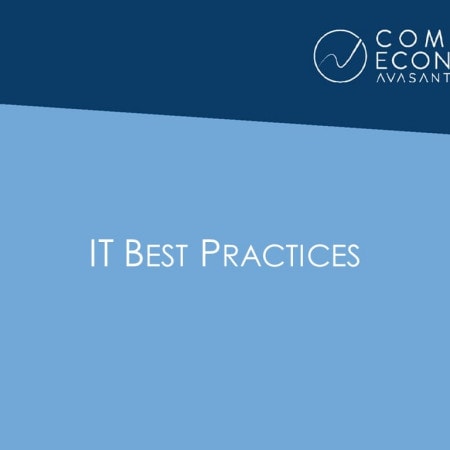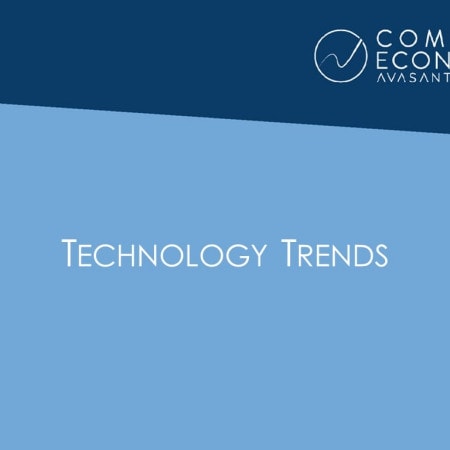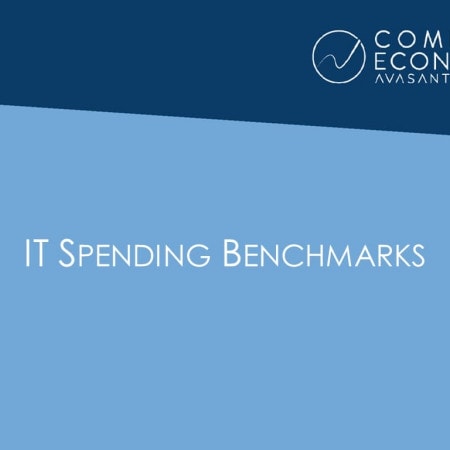-

Agriculture Industry is Increasing Efficiencies with Online Auctions
Contrary to its stereotype as an old-fashioned industry, agriculture is in a craze about the same phenomenon as all other industries: e-commerce--specifically auctions. Although online auctions are of peak interest on the Internet, agricultural auctions are in the early stages of development (currently, there is no data enumerating the number of cattle sold online), and like all other industries, agriculture is seeking a more efficient and cost-effective way of doing business. Online auctions and trading posts serve this function.
August, 2002
-

Agriculture and the Internet: Small Farms Promote Themselves Online
In a study of websites promoting small farming operations in the American Mid-West, Computer Economics found that owners of family farms and small orchards use several strategies to compete with large, nationally based e-commerce sites and attract visitors and shoppers to their operations.
August, 2002
-

eFruit Puts Buyers and Sellers in the Loop
Fruit International, creator of online marketplaces for buyers and sellers of agricultural commodities, has launched an online marketplace devoted to fruit procurement. With its acquisition of CitrusTrader.com completed, eFruit will soon offer FruitProcurement, an online marketplace for fruit contract negotiation, wireless fruit delivery scheduling, harvest and hauling negotiation, and fruit delivery status reports.
August, 2002
-

Finding Technology Consumers in the Education Market (Nov 2000)
For information technology or Web solutions companies looking to promote their products in the education market, it is important to pinpoint areas and types of schools that are most likely to yield future customers. Technology solutions for education must be highly tailored for specific the specific and unique needs of the end-users.
August, 2002
-

The Next Wave of Netrepreneurs: High School Students
In a survey of 101 San Diego County high school seniors in economics classes, Computer Economics found that 8% of students are already running a business online while another 56% are either planning an Internet business or are thinking of running an online venture in the future. All of the entrepreneurial students in our study who are running an e-business are male. Among the students currently planning a business, only one was female. Within the 37% of students who say they have never considered running their own business, the majority are female.
August, 2002
-

Interactive TV: Product Placement and Government Restrictions
Computer Economics consulted four experts in the field of ITV marketing for cutting-edge insight into ITV marketing both today and in the future. We asked our experts about the current standing of ITV-based e-commerce, including what e-businesses are already doing to reach consumers using product placement and ITV technology, and what government restrictions apply to product placement on television.
August, 2002
-

Interactive TV: Website Design Strategies
Computer Economics interviewed interactive TV (ITV) experts Gerard Kunkel, senior vice president of sales and marketing for WorldGate Communications and James Aguilar, director of network media for Microsoft regarding their views on the developing media of interactive TV and their strategies for creating ITV-oriented websites.
August, 2002
-

Visions and Positioning for the Future of Interactive TV
Companies must begin to position themselves for the emergence of interactive TV. Interactive TV technology is still in its primordial stage, and very few companies (even among the e-commerce elite) have positioned themselves to realize its benefits. Companies that plan now for the improvement and expansion of interactive TV will have a head start on their competition.
August, 2002
-

Convergence: I Want My NetTV
Whether cable modems or DSL prevail in integrating television with Internet services, converging with television can bring a new segment of surfers onto the Internet. Since no one aside from unabombers fears the television, computer-phobic, technologically deficient masses will begin surfing the web, providing e-commerce with a new market segment. WebTV failed, but that may have been due to a timing issue--at that point the web was still unfamiliar terrain. Now that the Internet has grown in popularity, integrating television with the Internet is a more viable procedure.
August, 2002
-

Making the Case for Automating Medical Practice (Oct 2000)
ePhysician has developed secure, Palm-based wireless handheld medical devices that help healthcare professionals improve the quality of care. The company established partnerships with VeriSign's wireless Internet trust services as well as several other companies to create the first security solution for PalmOS handheld devices intended to be Health Insurance Portability and Accountability Act (HIPAA)-compliant.
August, 2002
-

Retailers Must Coordinate the Online and Offline Customer Experience
Many organizations are beginning to understand the importance of matching their online advertising and marketing efforts to their offline television, print, and radio campaigns. But the coordinating effort shouldn't stop with the marketing department.
August, 2002
-

Computer Economics and the LAPD Take on Consumer and Merchandiser Fraud
Although fraudulent online shopping experiences are not the standard for most shoppers, Computer Economics has found through our Internet Shopping Complaint Hotline that it is still a major problem on the Internet. Part of the problem is that consumers, and sometimes businesses, do not know how to protect themselves from losing money to defrauders. In cases where consumers or businesses have already been defrauded, they do not know how to begin to rectify the situation.
August, 2002
-

Online Customer Service: Managing Disputes
In a focus group of online companies in the services sector, Computer Economics asked executives to define their approach to customer dispute management. The study revealed that the best policies for handling customer problems depend upon the focus of the organization.
August, 2002
-

Retailers Must Design for the Disabled
Most of the Web design press these days deals with facilitating ecommerce and making sites look good. With the rise of streaming media technologies such as RealAudio, design involving multimedia is also grabbing its share of design press ink. While it is important to have a state-of-the-art website, it is even more important to have a site that truly facilitates ecommerce.
August, 2002
-

Measuring Success: Professional Portal Metrics
Professional portals have become attractive online projects as many organizations scramble to create a productive Internet presence. However, it is important that the managers of these projects ensure future profitability. To help managers measure the potential success of their organization's professional portal, Computer Economics has created several metrics that assess the new portal in terms of its accomplishments in commerce, communications, and operations and support.
August, 2002

 Grid View
Grid View List View
List View